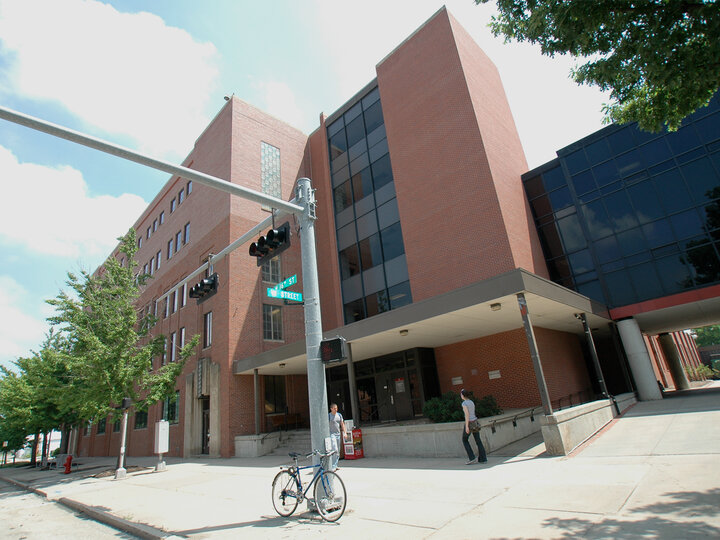Civil and environmental engineers build infrastructure that promotes economic growth and improves the quality of life. By working with the public and private sectors, civil and environmental engineers design buildings and bridges, protect water and air quality, build transportation systems, develop construction materials, and manage water resources.
The Department of Civil and Environmental Engineering at the University of Nebraska – Lincoln offers comprehensive undergraduate and graduate programs to students on the Lincoln and Scott campuses. Curriculum requirements are nearly identical on both campuses. Learn more about the five emphasis areas in our undergraduate and graduate programs.
Learn More About Civil Engineering Learn More About Environmental Engineering
Undergraduate Program
Undergraduate Program
Civil engineering focuses on protecting and enhancing our quality of life and sustaining our natural resources and the environment. As a civil engineer, you can design systems to manage water resources, provide power, irrigation, flood control, recreation and water and wastewater treatment. Civil engineers also plan and construct transportation systems, housing and other structures, aiming to minimize pollution and protect the environment.

Graduate Programs
Graduate Programs
The Civil and Environmental Engineering department provides several graduate pathways, including M.S. degrees in Civil or Environmental Engineering with thesis and non-thesis options. Additionally, a dual degree that combines an M.S. in Civil Engineering with a Master's in Community and Regional Planning will prepare students to tackle complex infrastructure and layout challenges. The Ph.D. program provides an opportunity to work alongside expert faculty on cutting-edge projects that address real-world problems in transportation, structures, water resources, and environmental quality.





